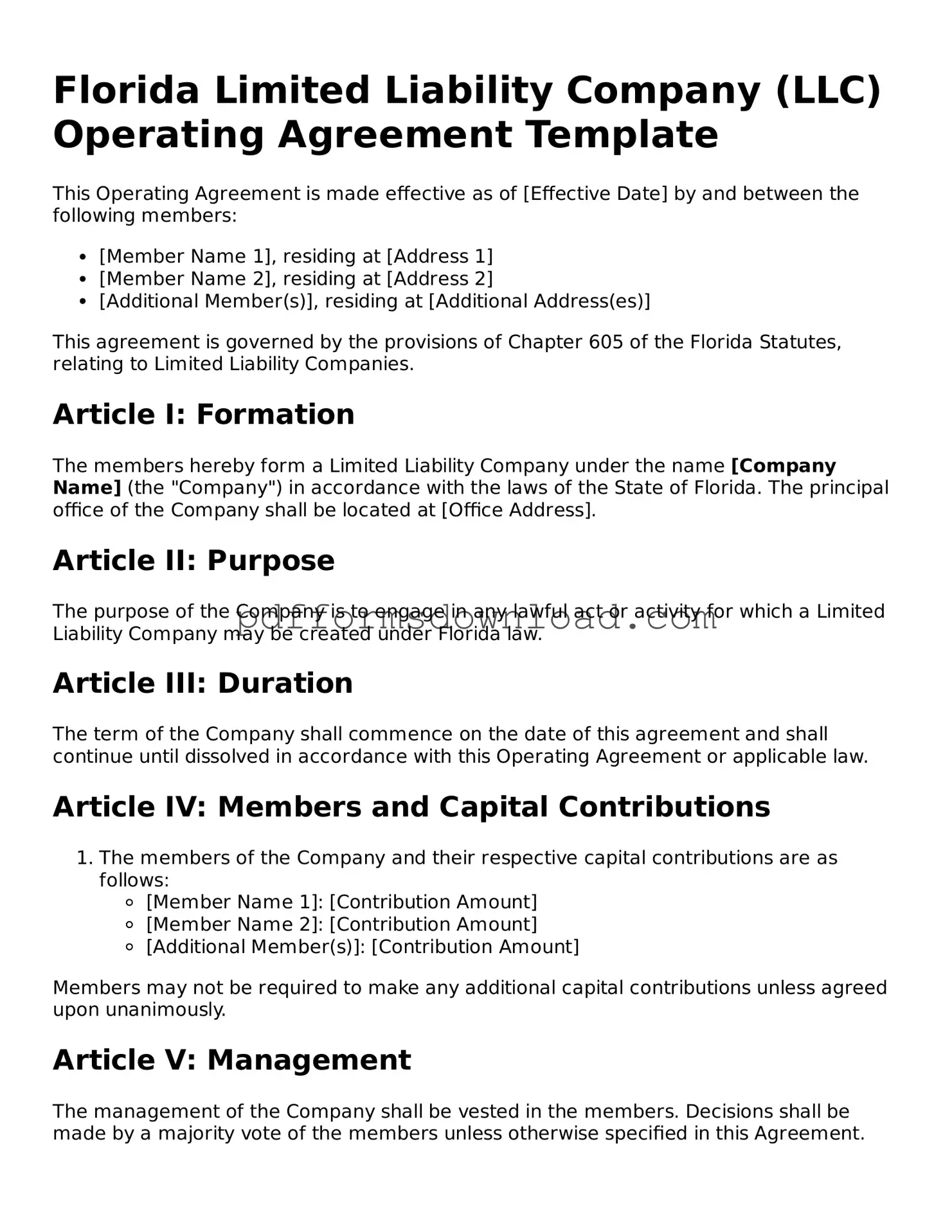What is a Florida Operating Agreement?
A Florida Operating Agreement is a crucial document for limited liability companies (LLCs) in Florida. It outlines the management structure, ownership, and operational procedures of the LLC. While Florida law does not require an Operating Agreement, having one helps prevent misunderstandings among members and provides clarity on how the business will operate.
Why do I need an Operating Agreement?
An Operating Agreement is essential for establishing clear rules and guidelines for your LLC. It protects your personal assets by reinforcing the limited liability status of the company. Additionally, it can help resolve disputes among members and provide a roadmap for decision-making processes. Without it, you may rely solely on state laws, which might not reflect your specific intentions.
Who should draft the Operating Agreement?
What should be included in the Operating Agreement?
Your Operating Agreement should cover several key areas: the name and purpose of the LLC, the roles and responsibilities of members, how profits and losses will be distributed, and the procedures for adding or removing members. It should also outline how decisions will be made and what happens if a member wants to leave the company.
Can I change the Operating Agreement later?
Yes, you can modify the Operating Agreement as your business evolves. It’s a living document that should reflect the current state of your LLC. Changes typically require the consent of all members, so it’s important to follow the amendment process outlined in the agreement itself. Keeping it up to date ensures that it continues to serve your business effectively.
Is the Operating Agreement filed with the state?
No, the Operating Agreement is not filed with the state of Florida. It is an internal document meant for the members of the LLC. However, it’s wise to keep a copy with your business records and share it with all members to ensure everyone is on the same page regarding the company’s operations.
What happens if I don’t have an Operating Agreement?
Operating without an Operating Agreement can lead to complications. In the absence of this document, Florida’s default LLC laws will govern your business. These laws may not align with your intentions and could result in disputes among members. It’s always better to have a tailored agreement that reflects your specific needs and expectations.
How can I get started on creating an Operating Agreement?
To create an Operating Agreement, start by discussing the key elements with all members of the LLC. Consider your business goals and how you want to structure management and finances. You can find templates online, but customizing one to fit your specific situation is often the best approach. Consulting with a legal professional can also provide valuable insights and ensure that you cover all necessary aspects.

